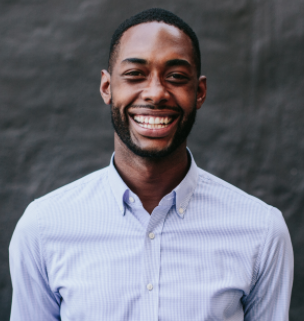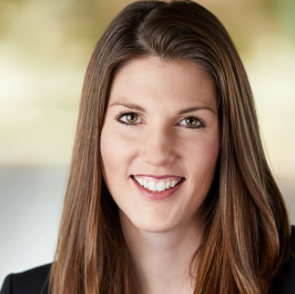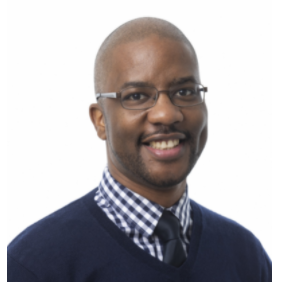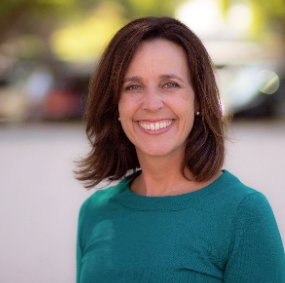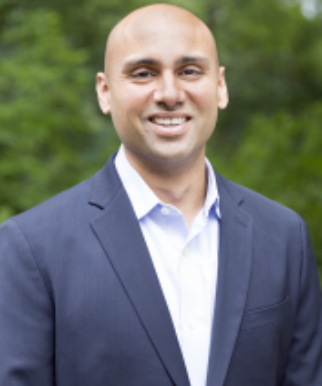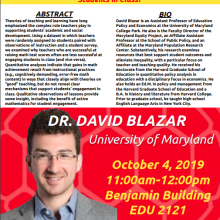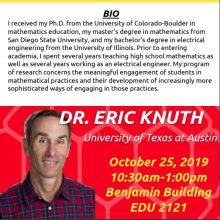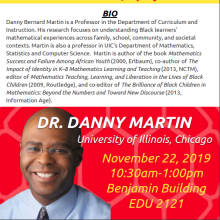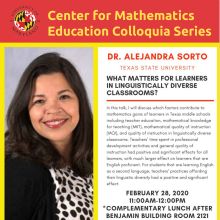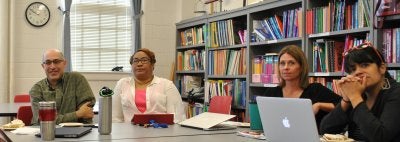

Center for Mathematics Education (CFME)
The Center for Math Education Colloquia Series
The Center for Math Education hosts a monthly colloquia series to bring the best mathematics education researchers from across the nation to nurture our research interests, enrich our projects, and expand our perspectives. This year all the sessions will be virtual. Graduate students and faculty are invited to join the presentations and discussion. Informal conversations that expand the learning from the presentation always follow.
September 22, 2023: Dr. Sarah Sword
Title: Studying Successful Doctoral Students in Mathematics from Underrepresented Groups.
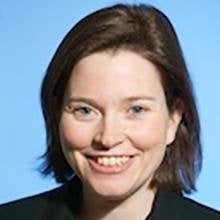
Sarah Sword is a Principal Research Scientist at Education Development Center, Inc. (EDC). She has a PhD in Commutative Algebra from Michigan State University. She was a post-doctoral Fellow of the Mid-Atlantic Center for Mathematics Teaching and Learning at the University of Maryland, where she worked with Dr. Dan Chazan and Dr. Jim Fey. At EDC, she has worked on curriculum, professional development, and research in education. Most of her current work focuses on post-secondary teaching and learning of mathematics.
October 27, 2023: Dr. Ann Edwards
Click here to add to google calendar
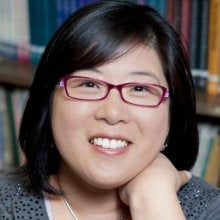
As WestEd’s Director of Mathematics, Ann R. Edwards leads a team of experienced researchers, curriculum developers, and technical assistance providers working to improve math outcomes for underserved communities at the PreK–12, postsecondary, and adult basic education levels.
Edwards has more than 30 years of professional experience, including secondary and collegiate mathematics teaching and research, curriculum development, teacher education, and professional development spanning elementary to postsecondary levels. She brings a deep commitment to addressing issues of equity that shape mathematics teaching and learning at all levels. Her projects, aimed at developing, implementing, and examining approaches to improving learning experiences and outcomes in mathematics, have been funded by the Institute for Education Sciences (IES), National Science Foundation (NSF), the Bill and Melinda Gates Foundation, and other private philanthropies and agencies.
Nov 17, 2023 - Dr. Brian Cafarella
Click here to add to Google Calendar
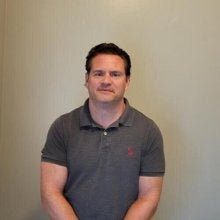
I am a mathematics professor at Sinclair Community College in Dayton, Ohio. I have taught a variety of courses ranging from developmental math through pre-calculus. I am a past recipient of the Roueche Award for teaching excellence. I am also a past recipient of the Ohio Magazine Award for excellence in education.
I have published in several peer-reviewed journals. My articles have focused on implementing best practices in developmental math and various math pathways for community college students. Additionally, I was the recipient of the Article of the Year Award for my article, “Acceleration and Compression in Developmental Mathematics: Faculty Viewpoints” in the Journal of Developmental Education. My first book, "Breaking Barriers: Student Success in Community College Mathematics" focuses on students' endeavors through community college math through their eventual success in a college-level math course. My second book, "Community College Mathematics: Past, Present, and Future" examines the trends, initiatives, and mandates throughout the rich history of community college math. Moreover, I address how we can help students sustain success in math in the future by learning from the past and present.
Feb 23, 2024 - Craig Willey
Click here to add to Google Calendar
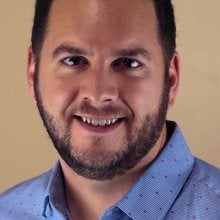
My research focuses on all aspects of mathematics teaching and learning with Latinas/os through the framework of mathematics and language socialization processes, or Mathematics Discourse Communities. My current studies aim to understand 1) the struggles and successes of monolingual teachers of bilingual, Latina/o students as they plan, implement and reflect on lessons, and 2) how we might develop and incorporate curricular features that provide bilingual learners better access to mathematical ideas and more opportunities to engage meaningfully, as well as provide a model for teachers to develop a critical pedagogy with bilingual learners.
March 29, 2024 - Mandy Jansen
Click here to add to Google Calendar
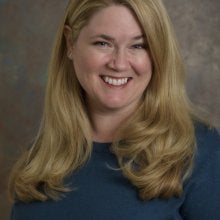
Dr. Amanda Jansen is a professor in the School of Education at the University of Delaware. She is a mathematics educator who conducts research on students’ engagement in mathematics classrooms and teachers’ learning from their reflections on their own practice. She is committed to honoring students’ voices through her research on students’ motivation and engagement. Her most recent book, Rough Draft Math: Revising to Learn, was published by Stenhouse Publishers in March 2020.
Before working in academia, Dr. Jansen was a junior high mathematics teacher. At UD, she is invested in continually improving UD’s elementary mathematics teacher education courses through research and development work.
Apr 26, 2024 - Melissa Gallagher
Click here to add to Google Calendar
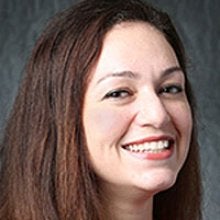
Dr. Melissa A. Gallagher focuses on supporting teachers to develop the knowledge, beliefs, and practices necessary to support the mathematical potential of all students, especially multilingual learners. In order to support teachers in this goal, we also study the ways in which culturally and linguistically diverse students express their mathematical ideas. We value diversity of thought, culture, and language, and see multilingualism and multiculturalism as critical to innovation. We work in partnership with teachers, students, and parents to help all students reach their full potential in mathematics.
2022-2023 Colloquia Series
October 7, 2022: Dr. Amy Ellis
Title: From Mathematical Play to Playful Math
Abstract: Mathematical play offers opportunities for students to exercise agency and engage in authentic disciplinary practices, and studies of mathematical play show positive outcomes for motivation, enjoyment, and learning. However, the current research base is largely situated either in early childhood / elementary school, or in informal settings such as video games or makerspaces. These studies investigate how play can be mathematized, examining the mathematics that arises from play. I consider the reverse direction, that of "playifying" the school mathematics that students and teachers must navigate in classroom contexts. In doing so, I'll share findings about mathematicians', undergraduates', and middle-school students' playful math engagement. Our study found that playful math tasks increased students' agency, authority, investment, and goal selection, as well as encouraged their development of creative, challenging ideas. I'll present two cases of a particular form of playful engagement called the "explore - focus cycle", one for a mathematician and one for a pair of middle-school students, and consider how playful math can support students' disciplinary engagement.
October 28, 2022: Dr. Brandie Waid
Title: From What about the 2SLGBTQIA+ folx? Toward A Truly Equitable Mathematics
Abstract: In this interactive talk, we will briefly explore the relationship between mathematics teaching and learning and 2SLGBTQIA+ identity, then consider a framework, the Mathematical Queeries Framework (MQF) that centers on 2SLGBTQIA+ equity in mathematics education. Participants will also engage with a mathematics activity that embodies many elements of the framework in action
November 18 2022: Dr. Charity Watson
Charity Watson is an Associate Director of Special Programs and Visiting Assistant Professor in the STEM Transformation Institute. She holds a MS in Mathematical Sciences and a PhD in Engineering and Science Education from Clemson University. She has taught an array of courses at the undergraduate and graduate level, including calculus, business statistics, mathematics for elementary teachers, and research methods in science and engineering education. Her research interests lie in college-level students and their performance and persistence in STEM fields and in introductory-level mathematics courses. Specifically, she is interested in factors that may impact the success and participation of underrepresented minorities in mathematics and STEM.
February 24, 2023: Dr. Erin Ottmar
Erin Ottmar is an Associate Professor of Psychology and Learning Sciences at WPI. She received her BA in psychology and elementary education from the University of Richmond. After college, she spent several years teaching in Ecuador and Japan. In 2011, she received her PhD in Educational Psychology: Applied Developmental Science from the University of Virginia. After graduate school, spent 3 years as a post-doctoral research scientist at the University of Richmond. Before coming to WPI, she was most recently a visiting research associate in the Department of Psychological and Brain Sciences at Indiana University. Her research aims to design, develop, and evaluate classroom interventions that improve mathematics teaching and learning. Erin’s research is highly interdisciplinary and focuses on the intersections of educational, cognitive, and developmental psychology.
March 17, 2023: Dr. Nicole Louie and Chundou of the Hmong clan (virtual)
Title: Building Racial Justice in Mathematics Education: Against Asian American Invisibility and Hypervisibility
Abstract: Everyone seems to be talking about racial equity and justice these days. Increasingly, scholars in mathematics education are recognizing the need to center the voices of those most affected—i.e., Black, Latine, Asian, and Indigenous children and families—in these discussions. Our current project explores participatory design research (PDR) as a tool for building school, university, student, and parent capacity for centering children of color and their families as researchers and designers of middle school mathematics learning, in a small but diverse Midwestern city. In this talk, we will discuss Asian American and particularly Hmong invisibility and hypervisibility as challenges to working for racial justice. We will share how these phenomena are affecting our project and outline our current efforts to make ourselves and the students of color we are working with visible in our full humanity.
April 28, 2023: Dr. Stephanie Casey
Stephanie Casey is a Professor of Mathematics Education at Eastern Michigan University. She obtained her Ph.D. in mathematics education from Illinois State University in 2008. Her research focuses on teacher knowledge for teaching statistics at the secondary level, motivated by her experience of teaching secondary mathematics for fourteen years. She is a 2012 STaR Fellow, one in a cadre of new mathematics education professors identified as future leaders in the field.
Speakers
February 25, 2022 Dr. Nathan Alexander, Morehouse College
Nathan Alexander, PhD, is an Assistant Professor of Data Science in the Division of Mathematics and Computational Sciences at Morehouse College in Atlanta, Georgia. At Morehouse, he directs the Quantitative Histories Workshop, an interdisciplinary teaching and learning lab for students, faculty, and community members in the Atlanta University Center (AUC). His current work examines the role of culture and history in the development of critical pedagogies for undergraduate mathematics and statistics. He completed his PhD in mathematics and education at Teachers College, Columbia University, a masters degree in teaching mathematics at New York University, and he double majored in mathematics and sociology at the University of North Carolina at Chapel Hill. Dr. Alexander can be reached at nathan.alexander@morehouse.edu, on Twitter @professornaite, or at professornaite.com. | |||||||||||||||||||||||||||||||||||||||||||||||||||||||||||||||||||||||||||||||||||||||||||||||||||||||||||||||||||||||||||||||||||||||||||||||||||||||||||||||||||||||||||||||||||||||||||||||||||||||||||||||||||||||||||||||||||||||||||||||||||||||||||||||||||||||||||||||||||||||||||||||||||||||||||||||||||||||||||||||||||||||||||||||||||||||||||||||||||||||||||||||||||||||||||||||||||||||||||||||||||||||||||||||||||||||||||||||||||||||||||||||||||||||||||||||||||||||||||||||||||||||||||||||||||||||||||||||||||||||||||||||||||||||||||||||||||||||||||||||||||||||||||||||||||||||||||||||||||||||||||||||||||||||||||||||||||||||||||||||||||||||||||||||||||||||||||||||||||||||||||||||||||||||||||||||||||||||||||||||||||||||||||||||||||||||||||||||||||||||||||||||||||||||||||||||||||||||||||||||||||||||||||||||||||||||||||||||||||||||||||||||||||||||||||||||||||||||||||||||||||||||||||||||||||||||||||||||||||||||||||||||||||||||||||||||||||||||||||||||||||||||||||||||||||||||||||||||||||||||
March 18, 2022 Dr. Julie Amador, University of Idaho
Dr. Julie Amador is an associate professor of elementary/middle school mathematics education, in the College of Education's Department of Curriculum and Instruction. Her research focuses on the design and enactment of mathematics lessons with an emphasis on student thinking and reasoning as related to professional noticing. She is specifically interested in how practicing and pre-service teachers construct models of student mathematical thinking based on professional noticing and engage in Lesson Study. From her faculty profile online | |||||||||||||||||||||||||||||||||||||||||||||||||||||||||||||||||||||||||||||||||||||||||||||||||||||||||||||||||||||||||||||||||||||||||||||||||||||||||||||||||||||||||||||||||||||||||||||||||||||||||||||||||||||||||||||||||||||||||||||||||||||||||||||||||||||||||||||||||||||||||||||||||||||||||||||||||||||||||||||||||||||||||||||||||||||||||||||||||||||||||||||||||||||||||||||||||||||||||||||||||||||||||||||||||||||||||||||||||||||||||||||||||||||||||||||||||||||||||||||||||||||||||||||||||||||||||||||||||||||||||||||||||||||||||||||||||||||||||||||||||||||||||||||||||||||||||||||||||||||||||||||||||||||||||||||||||||||||||||||||||||||||||||||||||||||||||||||||||||||||||||||||||||||||||||||||||||||||||||||||||||||||||||||||||||||||||||||||||||||||||||||||||||||||||||||||||||||||||||||||||||||||||||||||||||||||||||||||||||||||||||||||||||||||||||||||||||||||||||||||||||||||||||||||||||||||||||||||||||||||||||||||||||||||||||||||||||||||||||||||||||||||||||||||||||||||||||||||||||||||
April 8, 2022 Dr. Christopher Jett, University of Georgia
Dr. Christopher C. Jett is Professor of Mathematics Education in the Department of Computing and Mathematics at the University of West Georgia. His research examines African American male students’ mathematical and racialized experiences. He received an NSF CAREER award, the 2019 Association of Mathematics Teacher Educators (AMTE) Early Career Award, and a 2019 Presidential Early Career Award for Scientists and Engineers (PECASE). His scholarship has been published in the Journal for Research in Mathematics Education, Investigations in Mathematics Learning, and the Journal of Higher Education. Additionally, he is co-editor of Critical Race Theory in Mathematics Education (Routledge, 2019). From his online profile | |||||||||||||||||||||||||||||||||||||||||||||||||||||||||||||||||||||||||||||||||||||||||||||||||||||||||||||||||||||||||||||||||||||||||||||||||||||||||||||||||||||||||||||||||||||||||||||||||||||||||||||||||||||||||||||||||||||||||||||||||||||||||||||||||||||||||||||||||||||||||||||||||||||||||||||||||||||||||||||||||||||||||||||||||||||||||||||||||||||||||||||||||||||||||||||||||||||||||||||||||||||||||||||||||||||||||||||||||||||||||||||||||||||||||||||||||||||||||||||||||||||||||||||||||||||||||||||||||||||||||||||||||||||||||||||||||||||||||||||||||||||||||||||||||||||||||||||||||||||||||||||||||||||||||||||||||||||||||||||||||||||||||||||||||||||||||||||||||||||||||||||||||||||||||||||||||||||||||||||||||||||||||||||||||||||||||||||||||||||||||||||||||||||||||||||||||||||||||||||||||||||||||||||||||||||||||||||||||||||||||||||||||||||||||||||||||||||||||||||||||||||||||||||||||||||||||||||||||||||||||||||||||||||||||||||||||||||||||||||||||||||||||||||||||||||||||||||||||||||||
April 15, 2022 Dr. Elizabeth van Es, University of California-Irvine
Dr. van Es is interested in teacher thinking and learning and the design of pre-service teacher education and professional development. Her research is primarily concerned with how to support teachers' developing their noticing practices for ambitious and responsive instructional practice. Much of her work uses video to help teachers develop a vision of ambitious instructional practice and to learn to attend to student thinking during instruction. She has recently expanded her research to examine teachers' noticing for equity, focusing on how teachers' commitments to equity inform their noticing and instructional practice. She is launching a new study with the support from the National Science Foundation to develop a model of professional development that brings together secondary mathematics teachers, youth, and community leaders to advance teachers' noticing for equity in teaching. In addition, building on her research on pre-service teacher education, she received funding from the University of California Office of the President with colleagues at various University of California campuses to develop a data base that will study the influence of pre-service teacher preparation on beginning teaching practice. This study will take an improvement science approach to develop measures for assessing pre-service teacher effectiveness. From her online profile | |||||||||||||||||||||||||||||||||||||||||||||||||||||||||||||||||||||||||||||||||||||||||||||||||||||||||||||||||||||||||||||||||||||||||||||||||||||||||||||||||||||||||||||||||||||||||||||||||||||||||||||||||||||||||||||||||||||||||||||||||||||||||||||||||||||||||||||||||||||||||||||||||||||||||||||||||||||||||||||||||||||||||||||||||||||||||||||||||||||||||||||||||||||||||||||||||||||||||||||||||||||||||||||||||||||||||||||||||||||||||||||||||||||||||||||||||||||||||||||||||||||||||||||||||||||||||||||||||||||||||||||||||||||||||||||||||||||||||||||||||||||||||||||||||||||||||||||||||||||||||||||||||||||||||||||||||||||||||||||||||||||||||||||||||||||||||||||||||||||||||||||||||||||||||||||||||||||||||||||||||||||||||||||||||||||||||||||||||||||||||||||||||||||||||||||||||||||||||||||||||||||||||||||||||||||||||||||||||||||||||||||||||||||||||||||||||||||||||||||||||||||||||||||||||||||||||||||||||||||||||||||||||||||||||||||||||||||||||||||||||||||||||||||||||||||||||||||||||||||||
April 29, 2022 Dr. Niral Shah, University of Washington
Niral Shah is an associate professor of the Learning Sciences & Human Development, and is director of the Race, Theory, & Design Lab. His research concerns how people learn racism and anti-racism. Shah’s prior work has focused on race and racism in STEM education, specifically how racial narratives about STEM ability affect students’ identities and participation in classrooms. He is also a co-developer of the EQUIP classroom observation tool (https://www.equip.ninja/), which supports teachers and educational leaders to identify and mitigate implicit bias in classrooms. | |||||||||||||||||||||||||||||||||||||||||||||||||||||||||||||||||||||||||||||||||||||||||||||||||||||||||||||||||||||||||||||||||||||||||||||||||||||||||||||||||||||||||||||||||||||||||||||||||||||||||||||||||||||||||||||||||||||||||||||||||||||||||||||||||||||||||||||||||||||||||||||||||||||||||||||||||||||||||||||||||||||||||||||||||||||||||||||||||||||||||||||||||||||||||||||||||||||||||||||||||||||||||||||||||||||||||||||||||||||||||||||||||||||||||||||||||||||||||||||||||||||||||||||||||||||||||||||||||||||||||||||||||||||||||||||||||||||||||||||||||||||||||||||||||||||||||||||||||||||||||||||||||||||||||||||||||||||||||||||||||||||||||||||||||||||||||||||||||||||||||||||||||||||||||||||||||||||||||||||||||||||||||||||||||||||||||||||||||||||||||||||||||||||||||||||||||||||||||||||||||||||||||||||||||||||||||||||||||||||||||||||||||||||||||||||||||||||||||||||||||||||||||||||||||||||||||||||||||||||||||||||||||||||||||||||||||||||||||||||||||||||||||||||||||||||||||||||||||||||||
May 6, 2022 Dr. Jonee Wilson, North Carolina University Dr. Jonee Wilson, a former high school mathematics teacher for Baltimore County Public Schools, is an assistant professor of mathematics education in the Department of Teacher Education and Learning Sciences at North Carolina State University. Dr. Wilson earned her PhD in Mathematics Education at Vanderbilt University. Upon completing her PhD, she secured funding from NSF for a post-doctoral position to support her in developing the Equity and Access Rubrics for Mathematics Instruction, which is a set of rubrics designed to assess the extent to which teachers are implementing practices that support increased participation and achievement particularly among African American students. From her profile online. | |||||||||||||||||||||||||||||||||||||||||||||||||||||||||||||||||||||||||||||||||||||||||||||||||||||||||||||||||||||||||||||||||||||||||||||||||||||||||||||||||||||||||||||||||||||||||||||||||||||||||||||||||||||||||||||||||||||||||||||||||||||||||||||||||||||||||||||||||||||||||||||||||||||||||||||||||||||||||||||||||||||||||||||||||||||||||||||||||||||||||||||||||||||||||||||||||||||||||||||||||||||||||||||||||||||||||||||||||||||||||||||||||||||||||||||||||||||||||||||||||||||||||||||||||||||||||||||||||||||||||||||||||||||||||||||||||||||||||||||||||||||||||||||||||||||||||||||||||||||||||||||||||||||||||||||||||||||||||||||||||||||||||||||||||||||||||||||||||||||||||||||||||||||||||||||||||||||||||||||||||||||||||||||||||||||||||||||||||||||||||||||||||||||||||||||||||||||||||||||||||||||||||||||||||||||||||||||||||||||||||||||||||||||||||||||||||||||||||||||||||||||||||||||||||||||||||||||||||||||||||||||||||||||||||||||||||||||||||||||||||||||||||||||||||||||||||||||||||||||||
September 25, 2020
Gloriana Gonzalez
October 23, 2020
Brian Lawler
December 11, 2020
Karisma Morton
January 22, 2021
Zandra de Araujo
February 26, 2021
Caro Williams-Pierce
March 26, 2021
Kari Kokka
April 23, 2021
Michelle Peters
May 28, 2021
Chris Rasmussen
September 28, 2018
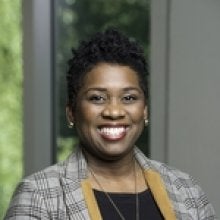
Toya Frank
George Mason University
October 26, 2018
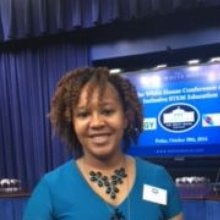
Tarcia Hubert
Lone Star College
November 30, 2018
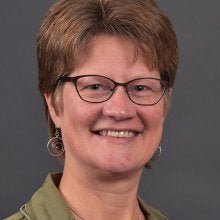
Laura Van Zoest
Western Michigan University
February 22, 2019
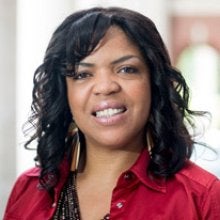
Ebony McGee
Vanderbilt University
March 29, 2019
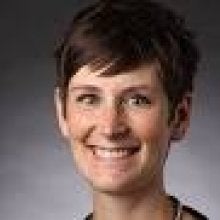
Melissa Gresalfi
Vanderbilt University
April 26, 2019
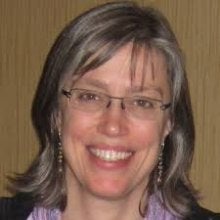
Martha Alibali
University of Wisconsin-Madison
Elizabeth Fleming and Dana Grosser-Clarkson
September 29, 2017
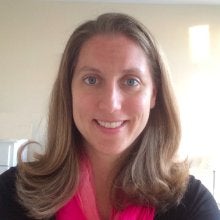
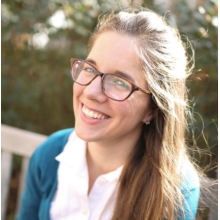
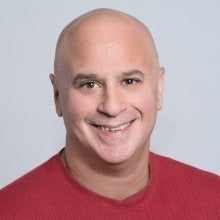
Daniel Levin
University of Maryland
October 27, 2017
TAKING STEPS TOWARD THINKING ABOUT DATA IN THE CLASSROOM
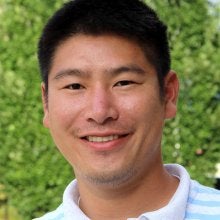
Victor Lee
Utah State University
More Information
November 17, 2017
WE REAL COOL: A PHENOMENOLOGY OF MATHEMATICS REMEDIATION
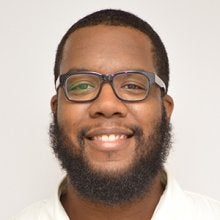
Gregory Larnell
University of Illinois at Chicago
More information
January 26, 2018
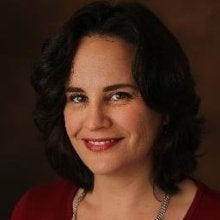
Ilana Horn
Vanderbilt University
More Information
February 23, 2018
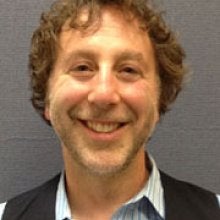
Mitch Nathan
University of Wisconsin-Madison
March 30, 2018
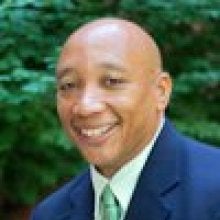
Robert Berry
University of Virginia
April 27, 2018-Cancelled
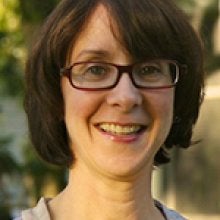
Miriam Sherin
Northwestern University
May 11, 2018
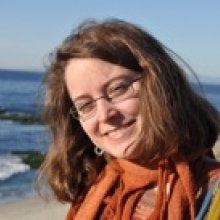
Mariana Levin
Western Michigan University
September 30, 2016
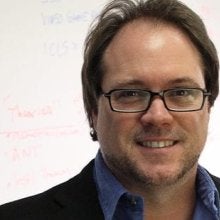
Reed Stevens
"Mathematics does not have an image problem, it has an association problem: Improving mathematics learning by breaking problematic associations and establishing productive new ones"
October 28, 2016
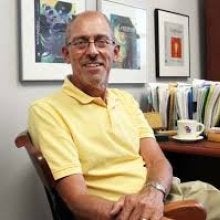
Mark Ashcraft
Math Anxiety
November 18, 2016
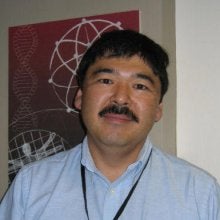
Tad Watanabe
Lesson Study
February 3, 2017
Mathematical Inqueery
February 24, 2017

Edd Taylor
Relationships between youths’ everyday cultural practices and mathematical thinking
March 31, 2017
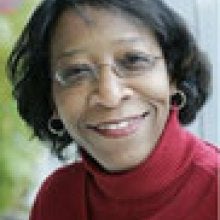
Jacqueline Leonard
